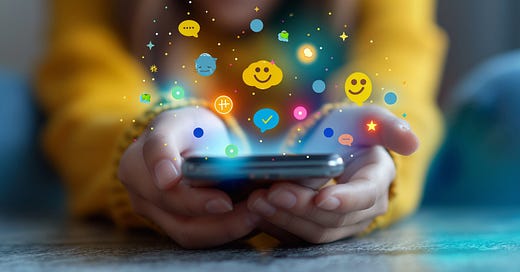Research Hit: AI Can Now Give Therapy
A new study shows that an AI chatbot can achieve comparable results to a real therapist.
Can AI really give therapy?
Well, apparently, yes.
Tell me more!
Well this study was a clinical trial of what is known as Therabot which has been in development in Nicholas Jacobson's AI and Mental Health Lab at Dartmouth since 2019.
The trial was with 106 people in USA that had been diagnosed with one of three types of disorders:
Major depressive disorder
Generalised anxiety disorder
Or an eating disorder
Participants interacted with Therabot with a smartphone app and responded to prompts about how they were feeling, or they, alternately, could start conversations when they needed to talk.
And this worked then?
Yes, the results were impressive - similar to those of working with an in-person therapist.
Participants diagnosed with depression experienced an average reduction in symptoms of 51% , and related improvements in mood and overall wellbeing.
Participants diagnosed with generalised anxiety reported an average reduction in symptoms of 31%, this can shift a person from moderate to mild anxiety, or from mild anxiety to below the clinical threshold for diagnosis.
Participants at risk for eating disorders (these are traditionally considered more difficult to treat) showed a 19% average reduction in concerns about body image and weight.
Those are pretty impressive results - so therapists are history?
Not so quick, the authors were quick to point out that a bot certainly can’t replace a real therapist (yet), for multiple reasons. One, the complexity of some cases, issues of multiple disorders, not to mention dangerous situations that can come up.
For them, and I fully agree, the major benefit is getting access to therapeutic interventions which is out of scope for a large portion of the people who need it.
There are also some clear upsides to an app - for example in giving regular prompts and always being available for a chat.
Another benefit may be that people could trust a bot more than a human and even open up more - that may sound counterintuitive but opening up to another person, for some, may be difficult. A bot also has no other motives.
But isn’t the relationship with a therapist part of the benefit.
Yes, research has previously shown that the relationship is important and this will certainly remain so.
Aren’t there risks?
Yes, of course, which is why the researchers clearly state that generative AI is not ready to give therapy fully autonomously. We’ve probably all heard of cases of AI giving ridiculous or dangerous advice and human beings may be more ready to make claim against a company and a chatbot.
The most likely case is that AI therapy tools will be used alongside therapists much as AI is now used in hospitals alongside doctors or alternatively for specific less serious cases.
Reference
Michael V. Heinz, Daniel M. Mackin, Brianna M. Trudeau, et al.
Randomized Trial of a Generative AI Chatbot for Mental Health Treatment.
NEJM AI, 2025; 2 (4)
DOI: 10.1056/AIoa2400802




